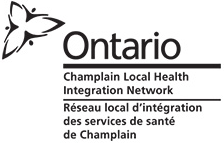Key Resources in Leeds and Grenville, ON
|
Everyone wants to be happy, content and healthy. Unfortunately, anyone can become stressed, overwhelmed, or have problems with moods, feelings and behaviours. Common mental health problems include anxiety, depression, eating disorders and addictions. Fortunately, help is available.
This guide has more information about the types of mental health help, supports and services that may be helpful for you, a family member or loved one.
|
Are you in a crisis? Crisis lines offer free, immediate and confidential one-on-one assistance to callers in need and usually operate 24 hours a day, 7 days a week. They are generally staffed by either paid professionals, or trained volunteers. They will listen, offer support and advice, and if necessary, will try to help the caller get connected to help in his/her community.
|
Are you looking for help, but don't know where to get started?
Consider contacting an Information and Referral (I & R) service, which can help you to 1) Find out about resources (i.e. 'information'), and 2) Connect you to those resources (i.e. 'referral').
|
Looking for an appointment the same day, or within a few days? Walk-in counselling clinics provide counseling services, without a need to book a long time in advance. They can be helpful for many issues such as family conflict, stress, grief, depression, anxiety, relationship issues, separation, divroce or abuse. Most of the time, no appointment is required, though some clinics may require you to call ahead the same day to book appointments for that day.
|
Online therapy (aka e-counseling, distance therapy) is therapy delivered by a real person over the internet.
Traditionally therapy has been face-to-face, but especially since the pandemic of 2020, most providers offer remote and virtual services such as video chat (through Facetime, Skype, Zoom, MS Teams, etc.).
|
Websites that provide online therapy, and which are automated and NOT delivered by an actual human being.
Examples include online CBT websites that teach CBT online.
Because there are so many websites that provide internet delivered therapy, we are not able to list all the websites out there, but rather focus on websites which are publicly funded, freely available and supported by evidence.
|
Is there an emergency such as medical or mental health emergency? If less intense options (e.g. calling a crisis line) are not possible or haven't helped, then it may be helpful to visit the local hospital Emergency Department. Typical mental health emergencies include:
* thoughts of suicide to the point where the person requires emergency help to keep them from ending their life;
* manic episode or psychosis where a person is behaving in an irrational way with inability to function.
|
There are various shelters that people can use when they have no place to go.
Emergency shelters are places for people to live temporarily when they don't have a place to stay. Emergency shelters (such as women's shelters) are primarily meant for those fleeing an abusive relationship, sexual abuse or domestic violence. Some shelters limit their clientele by gender or age.
Homeless shelters are temporary places to stay, usually meant for homeless people. Usually located in downtown areas, they are similar to emergency shelters. The main difference is that homeless shelters are usually open to anyone, without regard to the reason for need. Some shelters limit their clientele by gender or age.
|
This section has resources about finances, money, grants, subsidies and other related information. This is not an exhaustive list of resources and services, but highlights those which might be of interest to individuals with mental health issues.
|
The child welfare / child protection system is a group of services that promote the well-being of children by protecting children from abuse or neglect, ensuring they are safe, and strengthening families so that they can successfully care for their children.
|
Family physicians provide a great deal of mental health services for their patients, in addition to standard medical care. In cases where a patient requires more specialized care, a family physician can provide help on where to go for additional help and support.
|
"Addictions" refers to problems using drugs or alcohol or other problem behaviours. Gambling can also be addictive and can cause severe financial, emotional, and relationship problems.
|
Self-help, mutual aid and support groups are non-profit, voluntary organizations which provide support to individuals who share a common experience.
As defined by the International Network of Mutual Help centres, self-help groups are non-profit; open to members of the general public who share a common experience; meet face-to-face on a regular, ongoing basis, and are open to new members; provide mutual support through discussion and sharing of information and experiences. Members use their individual strengths to support each other, and can use their collective strengths to promote social change; Run by and for group members. Although professional (health care) providers may participate at the request of the group, their role stays that of a consultant.
Mental Health in General
Addictions (including Drugs, Alcohol and Gambling)
Anxiety
Depression
Schizophrenia and Psychosis
Eating Disorders including Anorexia and Bulimia
Autism and Autism Spectrum Disorders
Learning Disorders
|
Most hospitals have mental health services which may include Psychologists, Psychiatrists, Social Workers and other professionals. Programs offered typically include:
- Outpatient programs, where one comes to the hospital for mental health services;
- Day treatment, or partial hospitalization programs, where a person comes for treatment for longer periods or more frequently, for more intensive therapy than one would receive from simply seeing an outpatient therapist or clinician;
- Inpatient programs, where a person is admitted to hospital in order to provide a high level of supervision and care until the condition improves enough so that the person can be treated as an outpatient.
|
Counselling and therapy can be helpful for dealing with a wide variety of issues (e.g. stress and coping, relationship problems) and mental health conditions (e.g. depression, anxiety, etc.)
|
Psychologists and psychological associates help people solve problems with mood, behaviour or relationships. They perform assessment of, and provide diagnoses and treatment of mental health difficulties for children, adults, couples, and families who present with cognitive, emotional and behavioural challenges. They also perform psychoeducational testing for individuals with learning difficulties. They may use therapies such as cognitive behaviour therapy (CBT), behavioural therapies.
They may work as part of an agency, or in "private practice" (which means they will require payment from the client, or the client's private or work insurance).
|
Psychiatrists are medical doctors who have received specialized training in diagnosis and treatment of mental health conditions (such as psychotherapy and medication treatment). Some work in hospitals or mental health agencies. They may also work on their own in "private practice." Because physicians are publicly-funded, one does not need to pay any fees to see a psychiatrist, even for those in private practice.
Looking for a psychiatrist? The best way to see a psychiatrist is to speak to your family doctor to ask about whether seeing a psychiatrist would be helpful. Seeing a psychiatrist requires a referral from your physician.
Looking for a list of psychiatrists in your area? Unfortunately, because demand for psychiatrists is so high, and they are relatively few, it is very difficult to find any lists of psychiatrists. The best option is usually to contact the medical licensing body for whichever province you are in (for example, in Ontario, you would contact the College of Physicians and Surgeons of Ontario.)
Consider seeing a psychologist instead! Psychologists are similar to psychiatrists as they can both provide mental health assessment, diagnosis and treatment. Although psychologists do not treat using medications, the good news is for most conditions, non-medication treatments make a huge difference, such that many times, medications are not even required. View psychologists in your area.
|
Social workers help people to deal with problems in their personal, family or work life. They help by providing counselling or therapy, or by helping people find necessary resources. Social workers can work in many settings, including family services agencies, children's aid agencies, hospitals, and schools. Many social workers also work in private practice.
|
Psychotherapists provide psychotherapy (aka "talk therapy") and help individuals with difficulties by listening and giving support.
Special training is required in order to become a psychotherapist.
Various types of professionals such as Social Workers or Psychologists provide psychotherapy, and can thus be viewed as being psychotherapists as well.
|
Occupational therapists (OT) help people function in school or work through learning skills, or by adapting their work or school environment. OTs can assist with mental health by teaching sensory processing and self-regulation strategies; help with fine and gross motor.
OTs usually work with organizations such as schools or through the school board, and some also work in private practices.
|
This section has various legal resources including legal aid, and forensic resources. Forensic resources refers to resources for individuals with mental health problems who have had troubles with the law. This is not an exhaustive list of resources and services, but highlights those which might be of interest to individuals with mental health issues.




 Introduction
Introduction 


